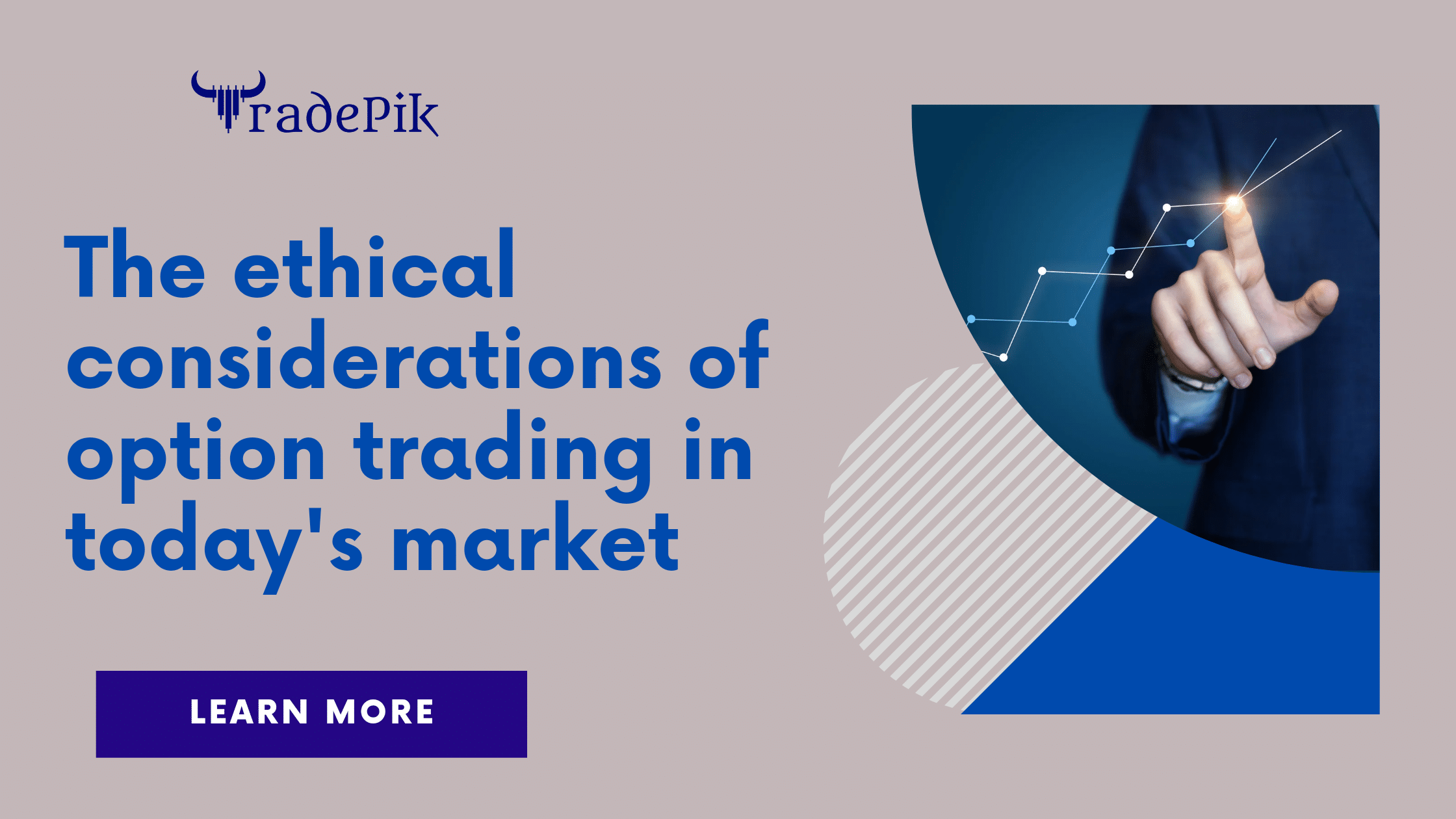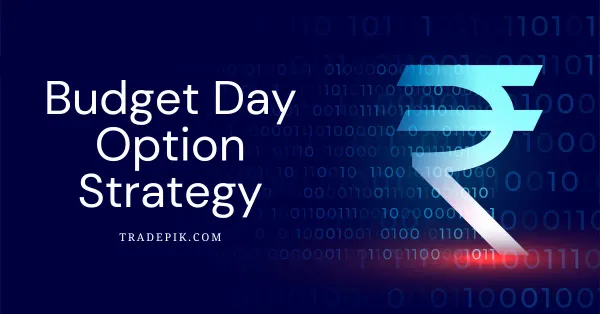The ethical considerations of option trading in today's market.

Option trading is a financial market activity in which a trader buys or sells the right, but not the obligation, to buy or sell a specific financial instrument at a predetermined price on or before a certain date. These financial instruments may include stocks, indices, currencies, and commodities, among others. Option trading can be a lucrative way to profit from price movements in the market, but it also carries a range of ethical considerations that traders should be aware of.
Ethical considerations of option trading
Ethical considerations in option trading may include issues such as insider trading, market manipulation, and the use of artificial intelligence (AI) in trading.
Insider trading refers to the act of using non-public information to make trades, which is illegal in many countries.
Market manipulation refers to the act of artificially influencing the price of a financial instrument, which can be unethical and potentially illegal.
The use of AI in trading raises ethical concerns about the role of human traders in the market and the potential for AI algorithms to make biased or unethical decisions.
Understanding and addressing these ethical considerations is crucial for traders looking to operate in a responsible and sustainable manner. In this article, we will delve deeper into these ethical issues and explore potential solutions for traders to consider.
Insider trading
Insider trading is a type of ethical violation that occurs when a trader uses non-public information to make trades. This information may include details about a company’s financial performance, changes in leadership, or other sensitive information that is not yet available to the public.
Using this information to make trades can give a trader an unfair advantage over other traders who do not have access to the same information. Insider trading is illegal in many countries, and those found guilty of insider trading may face significant legal consequences.
These may include fines, imprisonment, and the loss of professional licenses. In addition to the legal consequences, insider trading can also damage the integrity of the financial markets and erode public trust in the industry.
To avoid insider trading, traders should only use publicly available information when making trades. They should also be aware of any non-public information that they may come into contact with and refrain from using it for trading purposes.
It is also important for traders to be aware of any potential conflicts of interest that may arise and to disclose these conflicts to ensure that they do not inadvertently engage in insider trading.
Market manipulation
Market manipulation refers to the act of artificially influencing the price of a financial instrument, such as a stock or commodity, in order to profit from the resulting price movements.
Market manipulation can take many forms, including spreading false or misleading information, artificially boosting or depressing the price of a financial instrument, and manipulating trading volumes.
Market manipulation is unethical and can also be illegal in many countries. Those found guilty of market manipulation may face significant legal consequences, including fines and imprisonment.
Market manipulation can also damage the integrity of the financial markets and erode public trust in the industry.
To avoid engaging in market manipulation, traders should only use legitimate and accurate information when making trades. They should also be mindful of their own trading activity and refrain from taking actions that may artificially impact the price of a financial instrument.
It is also important for traders to be aware of any potential conflicts of interest and to disclose these conflicts to ensure that they do not inadvertently engage in market manipulation.
Ethical dilemmas related to artificial intelligence in trading
The use of artificial intelligence (AI) in option trading is a growing trend, with AI algorithms capable of analyzing vast amounts of market data and making trades based on predetermined criteria.
However, the use of AI in trading also raises a range of ethical concerns.One of the main ethical concerns surrounding the use of AI in trading is the potential for AI algorithms to make biased or unethical decisions.
This may be due to the biases inherent in the data used to train the AI or to the biases of the individuals who design and implement the AI algorithms.
In addition, the use of AI in trading may also lead to the displacement of human traders, raising ethical questions about the role of humans in the financial markets.
To address these ethical dilemmas, traders may consider implementing measures to ensure that AI algorithms are free from bias and are designed and implemented in a transparent and ethical manner.
This may include using diverse and representative data sets to train AI algorithms and involving diverse stakeholders in the design and implementation process.
In addition, traders may also consider implementing measures to support and retrain human traders who may be affected by the adoption of AI in trading.
Conclusion
In conclusion, option trading carries a range of ethical considerations that traders should be aware of in order to operate in a responsible and sustainable manner. These ethical considerations may include issues such as insider trading, market manipulation, and the use of artificial intelligence in trading.
Understanding and addressing these ethical issues is crucial for traders looking to uphold the integrity of the financial markets and maintain public trust in the industry.
Traders can take steps to ensure that they do not engage in unethical activities, such as using only publicly available information for trading purposes, avoiding actions that may artificially impact the price of a financial instrument, and disclosing any conflicts of interest.
In addition, traders may also consider implementing measures to address ethical dilemmas related to the use of AI in trading, such as ensuring that AI algorithms are free from bias and supporting and retraining human traders who may be affected by the adoption of AI.
By taking these steps, traders can help to ensure that the option trading market is a fair and transparent marketplace for all participants.
Share your feedback, suggestions or thoughts about the ethical considerations of option trading in today’s market in the comment section.
Learn About Trading Options in a course led by an Industry Expert. It doesn’t matter how old you are, the mentorship program is open to everyone who wants to learn more about the various option trading strategies. You’ll learn everything you need to know about these strategies and more. Don’t wait, Enroll today!





